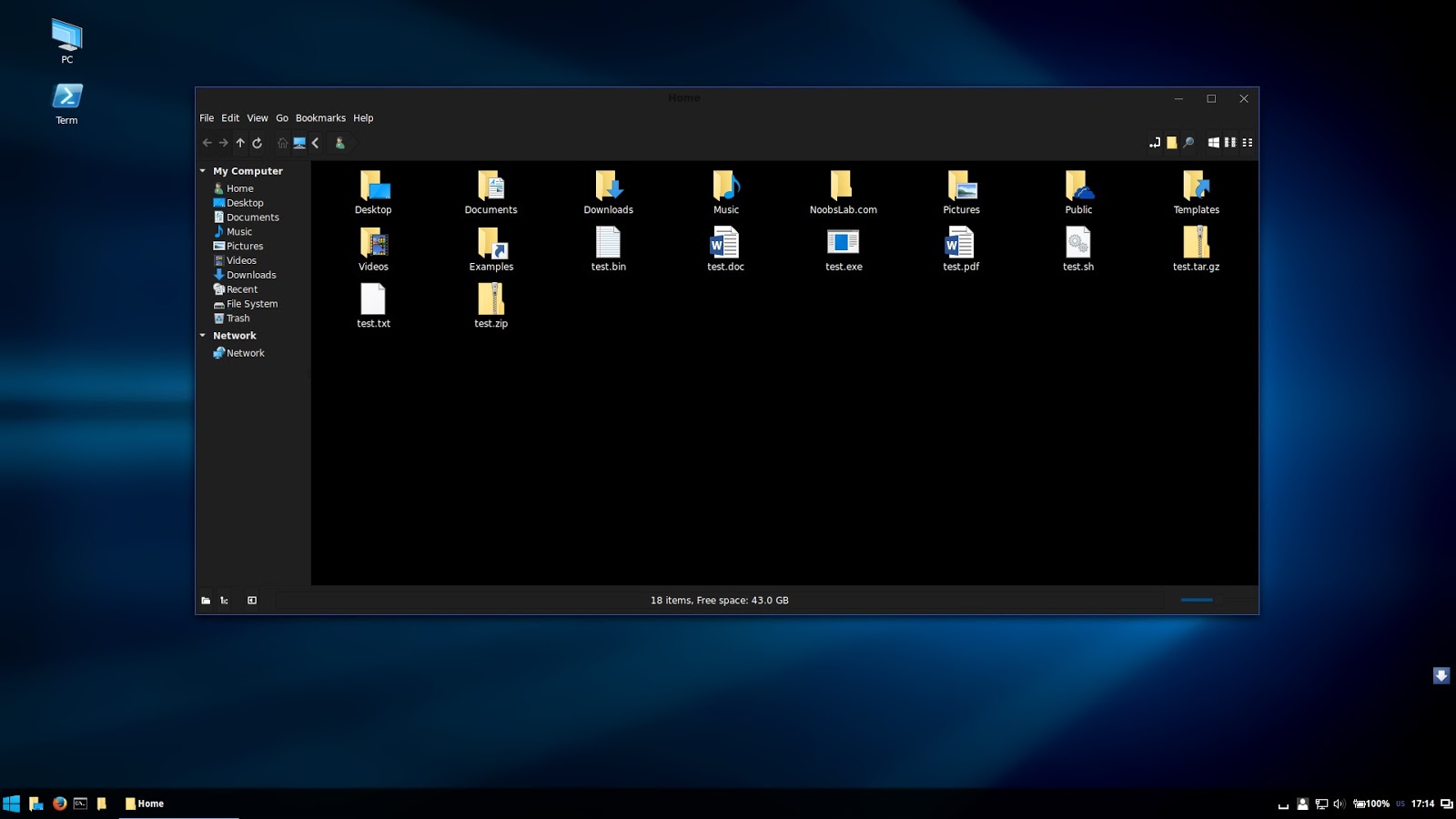I'm powering off my Lubuntu machine with a physical power button (shutdown -P) and Spotify doesn't save the last volume level setting. Iirc the shutdown sequence sends a signal (SIGTERM?) to all running processes telling them to die and it seems that Spotify doesn't save the volume when it exits afer catching that signal. How To Install Spotify In Ubuntu/Linux Mint Or Any Derivatives Distro. Still want to install it on your Ubuntu desktop or derivative, follow the steps below. And we’ll update this article if there any news about the official client development or there is an alternative to Spotify for Linux. Sudo add-apt-repository ppa:lubuntu-desktop/ppa && sudo apt-get update && sudo apt-get install lubuntu-software-center Remember its pre-alpha stage. But I highly recommend using. Conclusion So there you have it, Xubuntu vs Lubuntu.If you are looking for the most lightweight, Lubuntu is the choice to go.It uses the least system resources and comes with the fewest installed applications, unlike Xubuntu which packs some punch in polish and features meaning a lot more resource use. You could try to add '-disable-gpu' to the command-line to force spotify not to use gpu features. Spotify -disable-gpu. You propably have this same problem with Chrome and Chromium and it's related to your computer's 3D acceleration settings. Part 2: How to Download and Sync Spotify Music to Ubuntu? Due to the technical or performance issue, you may not want to install Spotify desktop in Ubuntu, so here we share you guys an alternative way to get the downloaded Spotify music to Ubuntu.
This is absolutely ridiculous. Who discontinues support on a platform less than two years old and calls it 'Legacy'. This is pure laziness on Spotify's part. This on top of recent news surrounding how unfair Spotify is to artists compared to other streaming services and I thing I am done with Spotify. At a time when there are a lot of great options for streaming music, you are forcing your PAYING CUSTOMERS' hands. /can-t-find-spotify-app-on-samsung-smart-tv.html.
# deb cdrom:[Lubuntu 13.10 _Saucy Salamander_ - Release i386 (20131016.1)]/ sau$
# See http://help.ubuntu.com/community/UpgradeNotes for how to upgrade to
# newer versions of the distribution.
deb http://ca.archive.ubuntu.com/ubuntu/ trusty main restricted
deb-src http://ca.archive.ubuntu.com/ubuntu/ trusty main restricted
## Major bug fix updates produced after the final release of the
## distribution.
deb http://ca.archive.ubuntu.com/ubuntu/ trusty-updates main restricted
deb-src http://ca.archive.ubuntu.com/ubuntu/ trusty-updates main restricted
## N.B. software from this repository is ENTIRELY UNSUPPORTED by the Ubuntu
## team. Also, please note that software in universe WILL NOT receive any
## review or updates from the Ubuntu security team.
## deb http://ca.archive.ubuntu.com/ubuntu/ trusty universe
## deb-src http://ca.archive.ubuntu.com/ubuntu/ trusty universe
## deb http://ca.archive.ubuntu.com/ubuntu/ trusty-updates universe
## deb-src http://ca.archive.ubuntu.com/ubuntu/ trusty-updates universe
As you can see, I have commented the last four lines to try to solve the problem, but it hasn't worked. I have tried to erase this list and get a new one online, but that failed as well (when I tried to get a new list online the same error occurred). Now even the Ubuntu repository in my computer isn't working. I believe I have to somehow import a new list or fix this one in order to go back to normality. By the way, everytime I swicht on my computer a system error announcement appears on the screen, although I'm able to use my computer without problems.
Thank you very much for any advise you can give me.
Bruno Zero
VLC supports a number of Linux distros officially and Ubuntu is one of them. There are a number of ways VLC Media Player can be installed in Ubuntu Linux. The simplest way is to use the utility called Ubuntu Software Center which will install VLC for the Snap Store. Terminal or command line users can also use the Linux terminal to install VLC Media Player. Users who prefer the traditional deb packages can install it with APT. No matter where the application is obtained for, it is free, doesn’t have any ads and plays almost every video and audio media file that is presented to it. This post is your guide to install VLC in the Ubuntu distro that you use.
Method 1: Installing VLC Using Ubuntu Software Center
- Click on the Show Applications button.
- Search/locate Ubuntu Software and open it.
- Click the search button 🔎 on the top right and search for VLC. Alternatively, click and navigate to Audio & Video and locate VLC.
- Click on Install and authorize it with your password (if required).
The application will download and install on your Ubuntu machine.
Now, you can easily locate and launch VLC from the application list.
Method 2: Using Linux Terminal to Install VLC in Ubuntu
- Click on Show Applications.
- Search for and launch Terminal.
- Type the command:
sudo snap install VLC. - Provide the sudo password for authentication.
- VLC will be downloaded and installed automatically.
Method 3: Using Advanced Package Tool (or APT) for Ubuntu
Download Spotify Lubuntu Download
- Open
apt://vlcin a web browser - Click on Open link under the Launch Application dialog
- Click on Install in the Install additional software dialog
- Authenticate with your login password

VLC will start to download and install in Ubuntu
Lubuntu Download Mirror
These were the three methods to downlaod and install VLC Media Player for Ubuntu Linux. If you want to remove the application from your system, then go the the Ubuntu Software utility and locate VLC. Then, you can easily remove it.